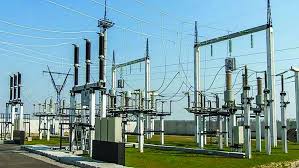Nigeria’s plan to settle the N2.7 trillion debt owed to gas suppliers has raised questions among energy analysts and market observers. The federal government recently announced a bailout arrangement that is expected to clear the huge backlog in the gas-to-power chain. While many see it as a short-term solution that will give gas producers and power generating companies some breathing space, experts are warning that the plan may not solve the fundamental problems in the electricity industry.
The N2.7 trillion debt has built up over several years as a result of weak revenue collection in the power sector. The situation dates back to 2013, when the government privatized major assets of the power industry with the hope of attracting efficiency and investment. However, more than a decade later, the sector is still battling liquidity shortages. Distribution companies, commonly called DisCos, remain unable to recover full costs from customers due to electricity tariffs that do not reflect the real market value of power.
Despite some adjustments made over the years, the tariff system is still far below what is required to cover the expenses of gas supply, generation, transmission and distribution. This mismatch has created a cycle where DisCos cannot collect enough money, generating companies cannot pay for gas, and gas suppliers struggle with unpaid invoices. Industry watchers say this cycle is the main reason the debts have piled up to N2.7 trillion.
According to analysts, simply offsetting the debts through government intervention without fixing the structure of the sector may provide relief for a short period but will not prevent another round of debts. They argue that there needs to be a comprehensive reform that tackles the root causes of financial losses in the industry. These include poor metering, high technical losses on transmission lines, electricity theft, and lack of proper investment in distribution infrastructure.
One of the experts said, energy lawyer Ayodele Oni, explained that the bailout could be likened to pouring water into a leaking bucket. He noted that until electricity tariffs are cost-reflective, the sector will always be in debt. He added that the government must find a way to balance affordability for consumers with sustainability for operators.
Another analyst, Dr. Eyo Ekpo, a former commissioner at the Nigerian Electricity Regulatory Commission (NERC), said the power sector must be run with discipline if it will ever recover. He stressed that the problem is not just about money but about governance, efficiency, and accountability. He argued that government interventions should be tied to clear reforms that strengthen regulation and ensure compliance from all market players.
The planned bailout, according to government sources, is expected to reduce the pressure on gas suppliers, some of whom have threatened to cut supply to power plants because of unpaid bills. If gas supply is disrupted, electricity generation will drop further, worsening the already unstable power supply in Nigeria. Many homes and businesses are already struggling with high energy costs, depending heavily on diesel and petrol generators.
But even with the bailout, experts are not confident that Nigerians will feel significant improvement in electricity supply in the immediate future. They insist that without reforms to reduce technical losses, improve metering, enforce payment discipline, and align tariffs with actual costs, the sector will continue to fall back into debt.
The electricity market in Nigeria has long been described as the “weak link” in the country’s economic development. Despite billions of naira spent on interventions, Nigerians still face epileptic supply and high costs of alternative energy. With the new bailout plan, the government hopes to stabilize gas supply and improve generation, but stakeholders say it is only a matter of time before the same problems return unless deeper changes are implemented.
Energy analysts continue to urge the government to adopt long-term policies that will attract investment into metering, transmission expansion, and renewable energy integration. They argue that reliance on bailouts is not sustainable and only postpones the real crisis. For Nigeria to achieve stable and affordable electricity, reforms must go beyond short-term debt settlements to address structural inefficiencies.
